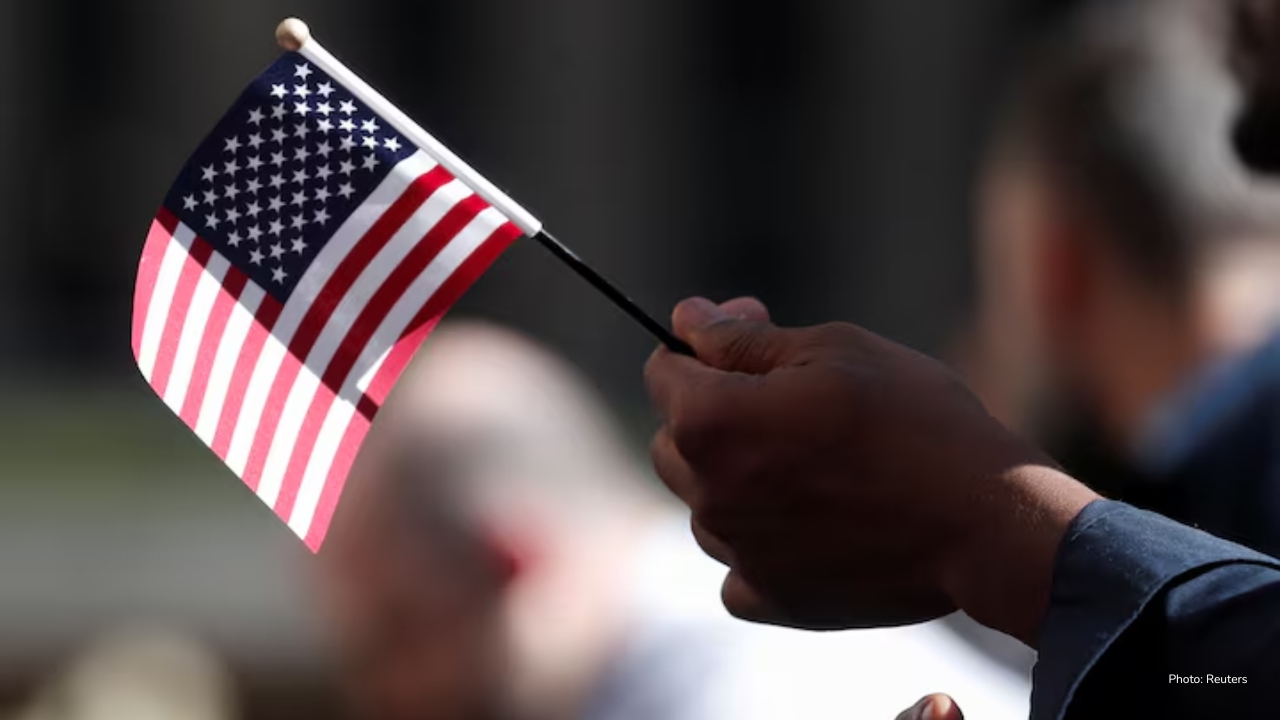
Shawn Clark, UCF Football Coach, Dies at Age 50
Shawn Clark, 50, UCF’s offensive line coach and former Appalachian State head coach, dies after rece

On September 22, 2025, news emerged that doctors might be exempt from the new H-1B visa fee in the United States. The fee, which was recently announced by the White House, is set at $100,000 and has sparked discussion among businesses, workers, and policymakers.
However, according to a report, certain professionals, including doctors, may not have to pay this fee if it is determined that their work is in the national interest.
The White House spokesperson, Taylor Rogers, mentioned that the potential exemption for doctors is still under consideration. The spokesperson emphasized that each application would be evaluated individually to see whether granting an exemption would benefit the United States.
While the fee aims to reduce the overall number of foreign workers entering the country through H-1B visas, it appears that critical sectors like healthcare may receive special consideration.
Understanding the H-1B Visa Program
The H-1B visa is a program that allows U.S. companies to employ foreign workers in specialty occupations. These occupations usually require advanced knowledge or technical skills. Industries such as information technology, engineering, scientific research, and healthcare are among the most common sectors that rely on H-1B visa holders.
The program has been a key source of skilled workers for U.S. companies, particularly in the tech and healthcare industries. Many hospitals, clinics, and research centers depend on foreign-trained doctors and nurses to fill shortages in the healthcare system. Similarly, technology firms rely on international talent to develop software, manage networks, and innovate in areas like artificial intelligence, cybersecurity, and cloud computing.
The new $100,000 fee, announced by the White House earlier in 2025, represents a significant increase compared to previous costs associated with H-1B visas. This fee is part of broader efforts by the government to control the number of foreign workers in the country and encourage more Americans to fill specialty roles. However, critics argue that raising the fee could make it more difficult for U.S. businesses to hire skilled international workers, potentially affecting innovation and healthcare delivery.
Why Doctors Might Be Exempt
Healthcare professionals, especially doctors, play a critical role in the United States. Hospitals and clinics in many parts of the country rely heavily on foreign-trained physicians to provide medical services. Shortages of healthcare workers have been a longstanding issue, particularly in rural and underserved areas.
By potentially exempting doctors from the H-1B visa fee, the U.S. government acknowledges the importance of maintaining access to skilled healthcare providers. This exemption could help ensure that hospitals continue to operate efficiently, patients receive timely care, and the overall healthcare system remains robust.
The exemption would likely apply to doctors who specialize in critical areas, such as primary care, emergency medicine, or specialties facing the highest demand. Each applicant would be assessed to determine if their work supports public health, contributes to medical research, or serves national priorities. The goal is to balance the government’s desire to manage immigration with the practical needs of the healthcare sector.
Political and Economic Context
The announcement of the $100,000 H-1B visa fee has been controversial. Critics, including business associations, technology companies, and healthcare institutions, have expressed concerns about its impact on the economy and workforce.
Tech companies argue that higher fees could slow down innovation, as they may struggle to hire international talent. Hospitals warn that increased fees might discourage foreign doctors from working in the U.S., worsening existing shortages.
Supporters of the fee, including certain government officials, say it is necessary to ensure that H-1B visas serve American interests. They argue that by charging higher fees, the program can focus on highly skilled workers while encouraging employers to hire U.S. workers whenever possible. This approach aims to balance the need for foreign talent with the goal of protecting American jobs.
Impact on Foreign Doctors
For foreign-trained doctors, the potential exemption is a positive development. Doctors who might otherwise struggle to pay the new $100,000 fee could now have a path to work in the United States without financial barriers. This is particularly important for young doctors, medical residents, or specialists from countries with lower income levels.
Many international doctors come to the U.S. for training, research, and professional growth. Access to H-1B visas allows them to contribute to the healthcare system, bring new medical knowledge, and gain valuable experience. By offering a fee exemption, the U.S. ensures that its healthcare workforce continues to benefit from global talent.
How the Exemption Process Might Work
Although details are not yet fully released, the White House has indicated that exemptions would be determined on a case-by-case basis. Officials will likely consider factors such as the doctor’s specialty, location of work, and contribution to public health. Hospitals or healthcare institutions may also be required to submit supporting documents demonstrating the need for the doctor’s services.
This approach ensures that exemptions are targeted and align with national priorities. It is not expected to be automatic, meaning doctors will need to meet certain criteria to qualify. However, the announcement signals a willingness by the government to prioritize critical professions within the H-1B program.
Broader Implications for the H-1B Program
The potential exemption for doctors highlights the ongoing tension between immigration policy and workforce needs. While the U.S. seeks to manage the number of foreign workers, it also depends on skilled professionals in essential fields. Healthcare is a clear example of this dependence, but other sectors, such as technology and scientific research, face similar challenges.
The new fee policy could lead to discussions about exemptions for other critical professions, though no official statements have been made yet. Economists and labor market experts suggest that flexibility in applying the fee may help maintain the U.S.’s competitive edge in global talent recruitment.
Reactions from the Medical Community
Healthcare organizations and medical associations have welcomed the news about potential fee exemptions. Many hospitals, especially in rural and underserved regions, rely heavily on foreign doctors. Without access to international talent, these hospitals could face staffing shortages, longer wait times for patients, and increased pressure on existing staff.
Medical schools and training programs have also noted that H-1B visas allow doctors to gain experience and bring advanced medical skills to communities across the country. Fee exemptions would ensure that these programs continue to attract international talent and maintain the quality of medical education and care.
International Perspective
Foreign doctors seeking to work in the U.S. have been closely watching the development of the H-1B fee policy. Countries that send medical professionals to the U.S., including India, the Philippines, and other nations with large numbers of trained physicians, may see this exemption as a positive signal. It shows that the U.S. recognizes the importance of their contributions to healthcare.
The exemption could also encourage more international doctors to apply for H-1B visas, knowing that they may be spared from the costly new fee. This could help alleviate shortages and ensure that patients across the U.S. continue to have access to high-quality medical care.
Challenges and Considerations
While the potential exemption is a positive step, challenges remain. Officials must carefully determine which doctors qualify for the exemption to prevent abuse of the system. Hospitals and employers will need to provide evidence of need, and visa applicants will need to demonstrate their skills and qualifications.
Additionally, the exemption may not cover other foreign workers in critical sectors, such as nurses, scientists, or engineers. These professionals may still face the full $100,000 fee, which could affect hiring and retention in other essential industries.
Next Steps
The White House has not released a timeline for when the exemption policy will take effect. Further guidance is expected in the coming weeks, including details on the application process and eligibility criteria. Healthcare organizations, foreign doctors, and legal experts are closely monitoring updates to ensure compliance and to prepare for any necessary applications.
Officials have emphasized that the policy is designed to serve the national interest. Doctors who qualify for the exemption are expected to work in areas where their skills are most needed, including hospitals in high-demand regions, research institutions, and underserved communities.
The potential exemption of doctors from the new $100,000 H-1B visa fee represents a careful balance between immigration control and workforce needs. While the fee aims to reduce the overall number of foreign workers, the U.S. government recognizes the importance of healthcare professionals to the nation’s well-being.
Foreign-trained doctors contribute significantly to the U.S. healthcare system, filling gaps in hospitals, providing critical care, and supporting medical research. By potentially exempting these professionals from the new fee, the government ensures that essential medical services remain accessible to communities across the country.
The decision also reflects a broader approach to immigration policy, in which exemptions may be considered for other critical occupations in the future. It demonstrates flexibility and responsiveness to workforce needs while maintaining overall immigration controls.
For doctors, hospitals, and patients alike, this policy provides reassurance that healthcare services will continue to benefit from international expertise. As more details become available, it is expected that the exemption will encourage foreign doctors to continue contributing to the U.S. healthcare system, supporting both public health and national priorities.